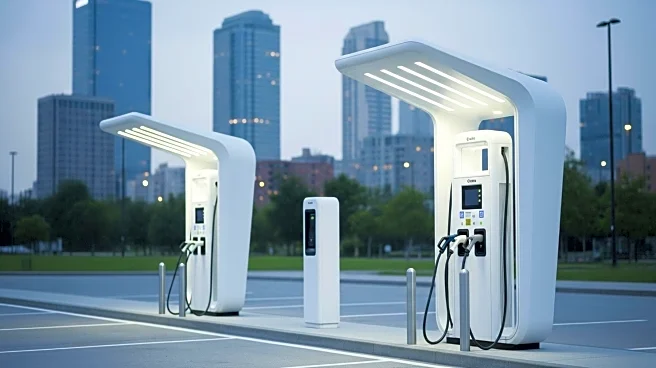What is the story about?
What's Happening?
The European Commission is under pressure to review and potentially weaken its 2035 car CO2 standards, a key component of the European Green Deal. Industry lobbying, particularly from Germany's auto lobby VDA, is pushing for 'flexibilities' in the regulations, such as supercredits for small electric vehicles and allowances for plug-in hybrids powered by 'clean' fuels. These proposed changes could significantly reduce the number of pure electric cars sold by 2035, impacting the EU's climate goals. The Commission's approach appears to be a 'bend, don't break' strategy, attempting to balance industry demands with environmental commitments.
Why It's Important?
The potential weakening of the 2035 CO2 rules could have significant implications for the EU's climate objectives and the automotive industry's transition to electric vehicles. If the regulations are diluted, it may slow down the shift towards electrification, affecting investment certainty and the competitiveness of European carmakers. This situation highlights the challenges of maintaining environmental standards amidst economic pressures and industry lobbying, with broader impacts on the EU's ability to meet its climate targets.
What's Next?
The European Commission's decision on the 2035 CO2 rules will be closely watched by industry stakeholders, environmental groups, and policymakers. The outcome could influence future regulatory approaches and set a precedent for how the EU balances economic interests with environmental commitments. Continued lobbying and negotiations are expected as the Commission navigates these complex dynamics.
Beyond the Headlines
The debate over the 2035 CO2 rules reflects broader tensions between regulatory frameworks and industry interests in the transition to sustainable technologies. It raises questions about the role of government in driving innovation and the potential for regulatory flexibility to achieve environmental goals without compromising industry growth. The situation underscores the need for comprehensive strategies that address both market dynamics and sustainability challenges.
















